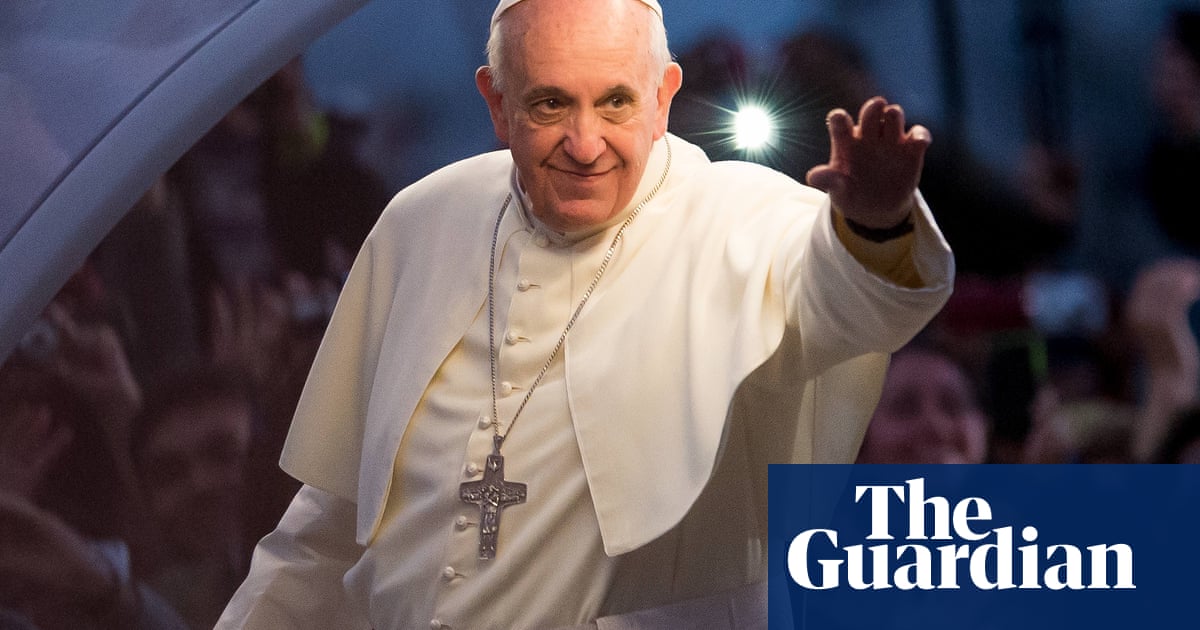American politicians and religious leaders reacted to the news on Monday morning of the death ofPope Francis, the first Latin American leader of the Roman Catholic Church, with expressions of mourning and tributes to his life and achievements.
The pope’s death was confirmed early Monday morning in an announcement read out by Cardinal Kevin Farrell, the Vatican camerlengo.
On Monday morning, the White House responded with a brief statement on social media: “Rest in peace, Pope Francis.”
Donald Trump, who met with the pontiff at the Vatican during his first term, also commemorated the late pope on his social media platform, Truth Social.
“Rest in Peace Pope Francis! May God Bless him and all who loved him!” the US president wrote.
Over the years, Francis and Trump had clashed. During the 2016 US presidential election, Francissuggested that Trump was “not Christian”for his plan to build a wall at the Mexican border. Trump responded bycalling Francis “disgraceful”.
More recently, in a letter to US Catholic bishops in February, Francis sharplycriticizedthe second Trump administration’s mass deportation efforts, calling them a “major crisis”. In the letter, the pontiff urged people “not to give in to narratives that discriminate against and cause unnecessary suffering to our migrant and refugee brothers and sisters”.
Francis’s statement also appeared to refute Vice-President JD Vance’suse of a theological concept, the “ordo amoris”, to justify the administration’s actions.
Vance was one of the last people to see and speak with Francis before his death on Monday, as the pairmeton Sunday.
After news broke of the 88-year-old pope’s death, Vance, who was baptized into the Catholic church in 2019,wroteon social media: “My heart goes out to the millions of Christians all over the world who loved him.
“I was happy to see him yesterday, though he was obviously very ill,” Vance said. “May God rest his soul,” he added.
Joe Biden,the US’s second Catholic president, also took tosocial media to honor Francis.
“Pope Francis will be remembered as one of the most consequential leaders of our time and I am better for having known him,” Biden said. “For decades, he served the most vulnerable across Argentina and his mission of serving the poor never ceased. As Pope, he was a loving pastor and challenging teacher who reached out to different faiths.
“He commanded us to fight for peace and protect our planet from a climate crisis. He advocated for the voiceless and powerless. He made all feel welcome and seen by the Church. He promoted equity and an end to poverty and suffering across the globe,” Biden added. “And above all, he was a Pope for everyone. He was the People’s Pope – a light of faith, hope, and love.”
In a statement, Marco Rubio, the secretary of state,wrote thathe and his wife, Jeanette, were “saddened to the news of Pope Francis’ passing”.
The former president Barack Obama alsopaid tribute to Francis, remembering him as a “rare leader who made us want to be better people”.
“In his humility and his gestures at once simple and profound – embracing the sick, ministering to the homeless, washing the feet of young prisoners – he shook us out of our complacency and reminded us that we are all bound by moral obligations to God and one another,” Obama said.
Hillary Clinton, the former secretary of state,cited the late pontiff’s last public address.
“In Pope Francis’s last public address, he preached care of the marginalized, the vulnerable, and migrants, saying ‘I would like all of us to hope anew and to revive our trust in others, including those who are different than ourselves.’ May we heed his wish,” Clinton wrote.
Hakeem Jeffries, the House minority leader,thanked Francisfor his “moral, visionary and groundbreaking leadership” and the Minnesota senator Amy Klobuchar described Francis as“a voice for the voiceless”.
Religious leaders in the US also responded to the news.
Archbishop Timothy Broglio, the president of the US Conference of Catholic Bishops (USCCB), issueda statementsaying that Francis would “long be remembered for his outreach to those on the margins of the Church and of society”.
“We remember his leadership in inspiring nations, organizations, and individuals to a renewed commitment to care for each other and our common home,” he wrote, adding that the US bishops “unite in prayer with Catholics here and around the world and all people of goodwill in gratitude for the life of our revered shepherd”.
The archbishop of New York, Cardinal Timothy Dolan,described Francis on Monday as“an eloquent preacher”, a “great teacher” and a “wonderful steward”, adding that “he’s the father of our family, and there’s a death in the family”.
The archbishop of Chicago, Cardinal Blase J Cupichsaid in a statementthat “the finest memorial we can offer is to re-form our hearts as Pope Francis asked – to see our brothers and sisters, to listen to them and to offer our prayers and actions that all may experience the fullness of God’s promise”.
Boston’s archbishop, Richard Henning,said he was saddened to hearof the pope’s death.
“His legacy as Holy Father is broad and deep,” Henning wrote. “In his ministry and across his writings, he has continuously called us to deeper faith and to a more generous participation in the boundless compassion of God. He has challenged us to turn away from selfish impulses and towards communion with others and respect for God’s creation.”
